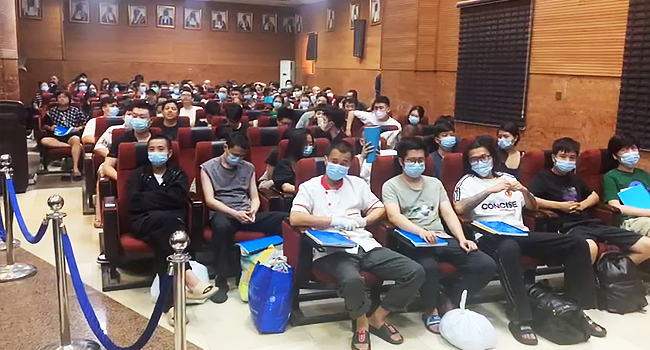By Enyichukwu Enemanna
A Federal High Court in Abuja, Nigeria’s capital has ordered that 113 foreigners linked to high-level cybercrimes, hacking, and activities threatening national security be remanded in Kuje and Suleja correctional facilities.
The presiding judge, Justice Ekerete Akpan made the order on the request by the legal representative of defendants who argued that the police facility where they are being kept wasn’t conducive for the number of suspects.
The arraignment of the suspects, however could not proceed over issues bordering on misrepresentation of their names on the charge sheet as well as legal representation.
The suspects are largely Chinese national who were arrested in an apartment in Abuja. The court adjourned the case to November 29, for their arraignment.
Counsel to some of the defendants, Ogwu Onoja, told the court that there was need to have interpreters who will be present in court during proceedings for the sake of some of his clients who do not understand spoken English language.
Counsel to Brazilian defendants among them, Eric Oba, also asked the court to separate his clients from other defendants, a request the court declined on the ground that arraignment had not been done.
Justice Ekerete Akpan had earlier made an adjournment to enable the defendants be availed a lawyer and to ensure that the lawyers are properly briefed in the matter.
The suspected comprising of 87 men and 26 women are from China, Vietnam, Thailand, Indonesia, Brazil, Philippines and Malaysia, as well as 17 Nigerian collaborators. They are facing a 6-count charge bordering on cyber crime.
The suspects were arrested on November 3, 2024 after a strategic operation was conducted through a coordinated raid at Jahi area in Abuja, where the suspects were allegedly using computers and other sophisticated devices to facilitate criminal activities.
Part of the count read that the “suspects did enter the territory of the Federal Republic of Nigeria with a business permit of 30 days duration and failed, or neglected to leave the Nigerian Territory at the expiration of the said permit and remained in Nigeria without a valid resident permit or appropriate valid visa which is in contrary to section 4 (2) and punishable under section 44 (1) (c) of the Immigration Act 2015”.
Another count stated that the “suspects within the jurisdiction of this Honourable Court with intent to defraud did promote via electronic messages on the internet, a fraudulent and unregistered gambling platform, materially misrepresenting facts about the said fraudulent gambling platform upon which reliance, persons in Nigeria and outside Nigeria suffered enormous economic losses and you thereby commit an offence contrary to and punishable under section 14 (2) of the Cybercrimes (Prohibition, Prevention, Etc) Act, 2015 (As Amended, 2024)”.




































